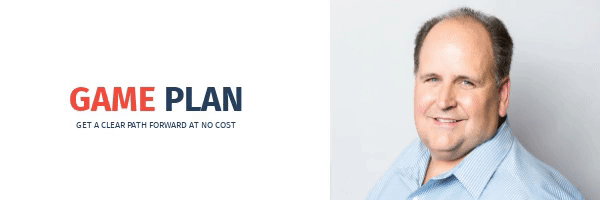The recent 2020 Benchmarking Study demonstrated the dramatic revenue difference between those who use a CRM and those who do not (if you didn't know, CRM stands for customer relationship management). For those who have feelings of dread about trying out a CRM, or memories of CRMs before the modern email and mobile integrated versions, it's easy to have completely the wrong idea about the about why am I doing this?
CRMs' primary purpose in the past was for sales manager visibility. It was designed to track sales activity and track a sales pipeline. Those are still valuable purposes. But the reason that CRMs deliver better revenue is not just because it helps supervisors. Today, CRMs empower marketing, sales and customer service. Salespeople may feel that they are doing CRM updates for their sales manager - if so, they are missing the point (assuming they have a truly modern CRM).
The real truth behind the value of a CRM lies more in our ability to empower effective communication and personalized follow-up. A modern CRM can leverage the time of salespeople, and multiply their effectiveness by customizing messages, prompting responses, and providing lead intelligence. Whether you are reaching out new customers or working to recruit employees or build referrals, this is essential for any growth plan that involves sales, marketing or customer service.
A CRM allows you to personalize the way you attract and win employees and customers. Personalized messages deliver better results.
In the CRM demonstration above, you'll see various ways to reach people, personalize the experience, and make their next steps easy. By way of pulling back the curtains, what you'll get is automated, but won't feel like you are one cog in a wheel. That's what a CRM should do, allow a sales person or recruiter to deliver personalized impact in less time.
If you're still using a spreadsheet
If you're tracking people in a spreadsheet, you're using great technology for accounting😭, and skipping modern technology for sales or recruiting. Leave the spreadsheets to the numbers people, and step over into the world of getting things done. Here's a few things your CRM can do for you:
- Scan business cards into the CRM
- Add people that you email automatically into the CRM
- Remind you to call, email or reach out
- Score the readiness of a prospect
- Review their browsing history
- Schedule an appointment without trading emails or phone calls
- Work together with a colleague
- Track your activity and follow-up from your mobile device (while sitting by the pool)
- Notify you immediately when someone is ready to act
- Send a series of emails from your personal inbox that you've pre-written
- Track the opening of a document so you can see who opened it
- Tracking whether your email has been opened, or a link clicked
- Include a video in your email and increase your email open rate to 75%
- Create lead lists categorized by hot, cold and just lukewarm
- Make sure that the right questions get asked, answered and tracked
- Automatically create activity reports that you can copy, paste and turn in
- And... lots of other things.
Why I don't hate my crm
That's a long list, and it's not complete as there are more tasks that a CRM can do for you. That is the idea after all- get the CRM to work for you. Here are a couple of things that I just couldn't work effectively without:
- Notifications - I really want to know when people take the actions that I want them to take. I don't want to miss the "ready moments" when people are ready to talk, looking for help. I want my CRM to track me down and send me a prompt on my email, text or desktop.
- Email open tracking - If I send an email, it's important that I know it was opened, and how many times. That allows me to know when to follow-up and how.
- Video Email - I want my email to stand out, and I want to send people personalized or pre-recorded videos because it boosts my open rates as high as 85%.
- Reminders - I'd rather be reminded than have to remember- how about you? My CRM helps me create tasks for myself (and others) whenever I send an email, make a note, or make a call.
OK, that sounds pretty cool, right? And here's something even cooler. You can get one of these CRMs for free to provide some of the basic features. Yes, really free, and without a time limit. And, for a little spare change you can bump it up to the uber-effective level.
A crm Should Sit at the Center of your work
Don't settle for an isolated CRM, one that has limited functionality. The CRM that you need should be integrated into sales, marketing, website and customer service. The more integrated, the more powerful. A CRM that is website integrated powers smart and personalized pages and forms. A CRM integrated into marketing means that you can send people what they are actually interested in, instead of generic stuff they won't read.
If you want to find out how a CRM can boost your marketing, employee recruiting or sales efforts, schedule a call.




